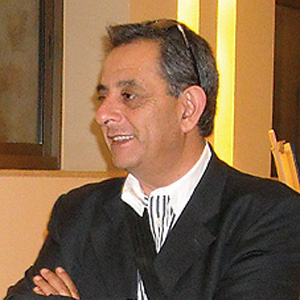Scorn was the immediate and impulsive reaction to an interview given by one trade unionist from Jerusalem after he called for Abu Mazen to denounce the “turmoil” at Al-Aqsa. The unionist also called on our president to condemn the incident that took place in an Israeli settlement a few days ago, where three settlers were killed by a Palestinian.
Prior to the interview, the Palestinian public mood was on fire when, under the pretext of maintaining security, the Israeli authorities placed electronic metal detectors at the entrance of Al-Aqsa Mosque, which the Palestinians saw as tampering with the Status Quo over the sovereignty of Al-Aqsa Mosque and compound. A raw nerve was touched, and from day one, it was clear that Palestinians, particularly those living in East Jerusalem, were ready to go all out in order to remove those detectors. They were ready to do whatever it takes to achieve their goal. Apparently caught by surprise to see such a fierce reaction, Israel took advantage of a diplomatic incident that took place in Jordan and reached a deal with King Abdallah, the custodian of the holy sites in Jerusalem, to remove the detectors.
Back to the unionist who claimed to represent thousands of merchants. As off-key as the man sounded, his message was very clear. People are in dire need of work in order to make ends meet. Disruption of work will cause further suffering. His concern and fear of what might happen were clear from his tone, his body language, and his words, in fact. He sounded like a responsible father trying his best to provide food for his children, which took precedence over everything else. As unpatriotic and unreligious as the interviewee initially seemed to viewers, there was something humane in his message that stirred empathy and compassion. I probably read, saw, and heard a thousand comments and interviews with all sorts of people during the past two weeks, but this one haunts me in a way. On one hand, he seems to jar with the consensus, while on the other hand, he is calling for serenity, rationality, and the freedom to attend to one’s basic needs. To judge him as selfish somehow does not sit well with me. In fact, there is something genuine and sincere in his call.
Wouldn’t it be nice if our part of the world could enjoy peace and tranquility? Wouldn’t it be nice if being able to go to work and earn a living were not an issue? The pyramid of Maslow’s Hierarchy of Needs shows that basic needs, such as food, water, warmth, and rest, constitute the foundation of the pyramid. Oddly enough, beliefs and nationalism are not even mentioned! But it seems that human beings just had to interfere with nature, invent new “needs,” and ruin everything! I wish that we could have remained as simple as we were in our original state. Unfortunately, beliefs and nationalism today have become as important to us as the basic needs described by Maslow. Sometimes even more important! I pray that the leaders of the world would simply let people be, let people live and work and have a life. Most importantly, I pray that no nation will dominate another!
Sani P. Meo
Publisher


